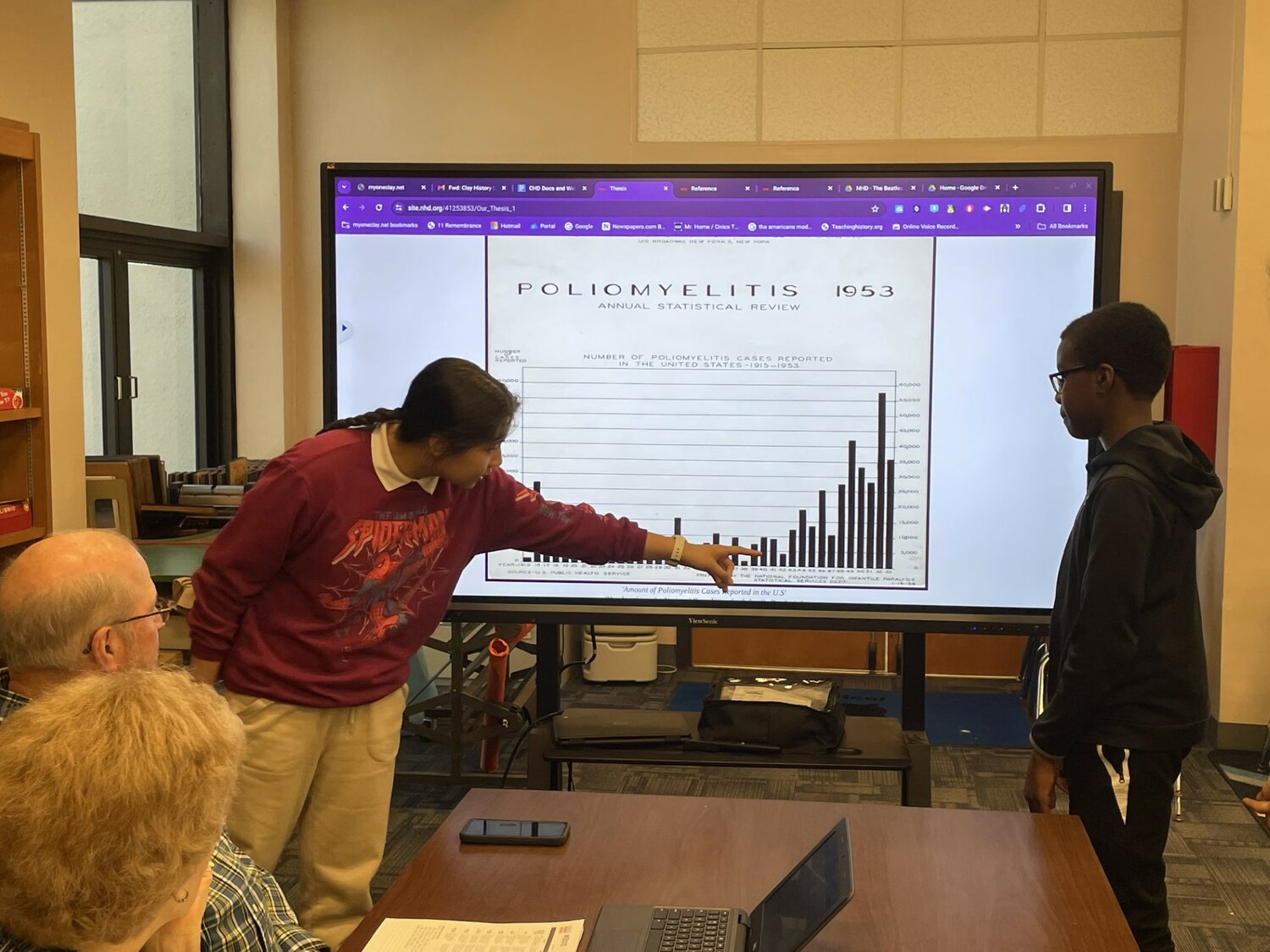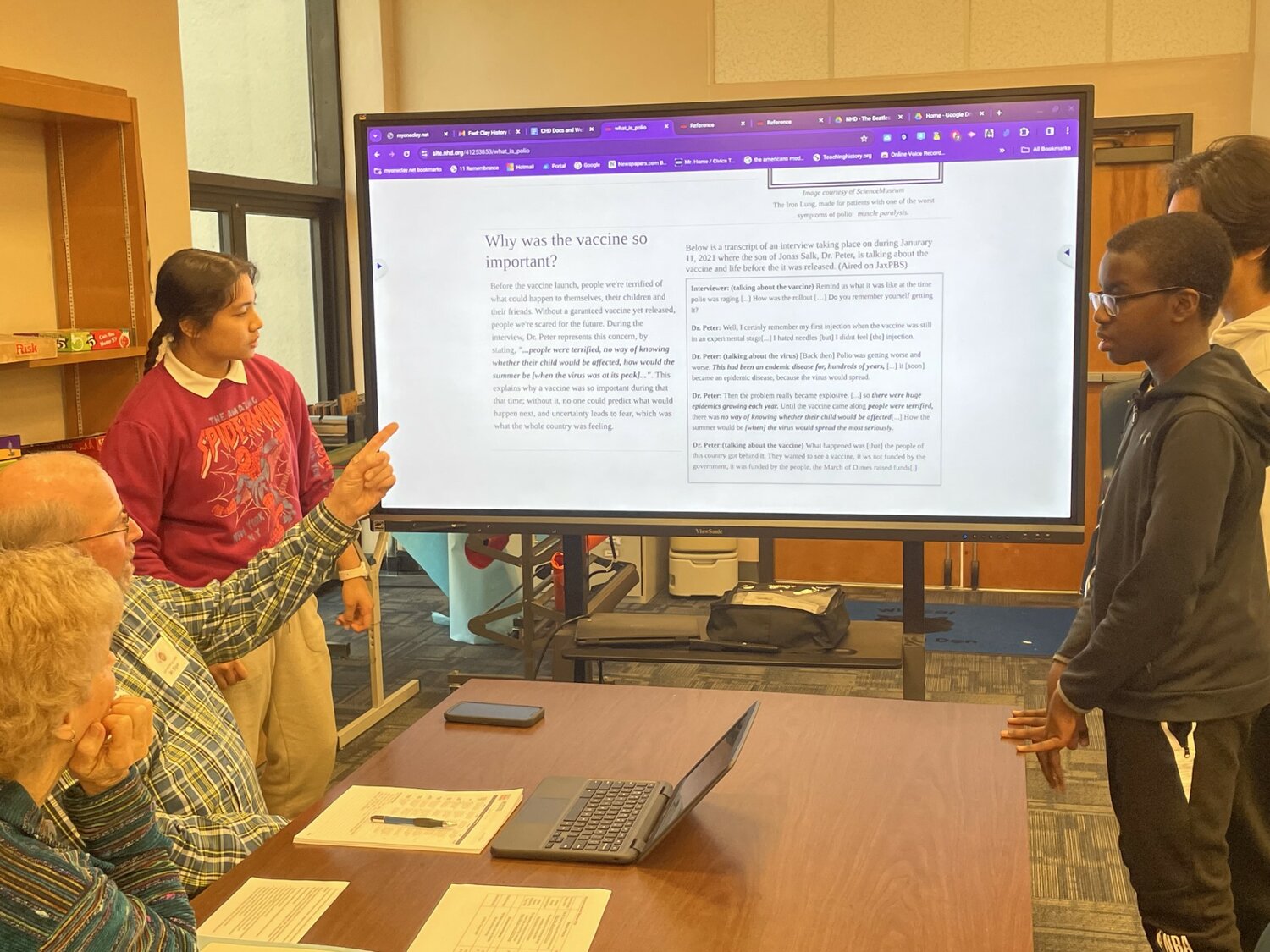'Turning Points in History' at annual History Fair
Students at Grace Episcopal, OPJH defend their theses
jack@claytodayonline.com
ORANGE PARK – The course of human history has taken twists and turns, sometimes abruptly so. This is why “Turning Points in History” was an exciting theme for the Historical Fair and an …
This item is available in full to subscribers.
Attention subscribers
To continue reading, you will need to either log in to your subscriber account, below, or purchase a new subscription.
Please log in to continueDon't have an ID?Print subscribersIf you're a print subscriber, but do not yet have an online account, click here to create one. Non-subscribersClick here to see your options for subscribing. Single day passYou also have the option of purchasing 24 hours of access, for $1.00. Click here to purchase a single day pass. |
'Turning Points in History' at annual History Fair
Students at Grace Episcopal, OPJH defend their theses
ORANGE PARK – The course of human history has taken twists and turns, sometimes abruptly so. This is why “Turning Points in History” was an exciting theme for the Historical Fair and an interesting lens for analysis and presentation.
Last Thursday, students from Orange Park Junior High and Grace Episcopal Day presented poster boards, websites and documentaries to defend their theses for the chance to represent Clay County at the State History Fair.
Some topics included the D-Day Normandy Invasion in WWII, Jonas Salk’s polio vaccine, the Seneca Falls Convention, the Beatles Invasion, the Internet and more.
The presentations came after months of research, research and more research. Students were asked to provide 10 primary and secondary sources to support their theses. However, the work wasn’t grueling. Instead, it allowed students to dive deeply into the topics they chose and were interested in.
Sophia Pre, Amara Hassan and Tung Thai from OPJH shared a mixture of nervousness and excitement before their presentation, arguing Jonas Salk’s polio vaccine was a turning point in history.
The group presented a website they created, which displayed a graph of the U.S. polio cases and death rates. The graph peaked in the early 1950s before it abruptly plummeted and leveled off entirely by the 1960s, dubbed a “miracle.”
The group pointed to the rapid success of Jonas Salk’s vaccine, developed in 1953, and the nationwide campaign that followed.
It was a monumental moment in medical history, they said.
Reilly McInnis from Grace Episcopal was eager to present a historical moment that was personally meaningful. His great-grandfather fought in World War II, so he was drawn to the conflict, D-Day in particular, which he argued was a turning point in the war.
The largest amphibious landing in history incurred significant casualties, but by successfully landing over one hundred thousand soldiers at the five beachheads, the Allies could begin the liberation of France and the rest of Western Europe, he said.
Vishi Garig, the Archives Supervisor for Clay County, served as one of the judges for the History Fair. She was impressed by the presentations, the students’ scholarship, the attention to detail and the passion for historical events.
Reilly McInnis won first place in the individual exhibit category for his project, “How did the Allied Powers’ victory at D-Day change the outcome of World War II?” McInnis also received awards for the Art Hall and Creative Expressions categories.
Caitlin Garett from Grace Episcopal was runner-up and the Women’s History Winner for her project, “How did the Match Girl Strike of 1888 lead to improved working conditions for women?”
Sophia Pre, Amara Hassan and Tung Thai won first place in the group website category for their presentation, “The Beginning of Medical Advancements: Jonas Salk and the Polio Vaccine.” The group also received the award for Best Use of Primary Sources.
Andreas Alvarez and Cameron Nixon were the runner-up group for their website presentation, “Revolutions in the Technology World: Invention of the Intel 4004.”
Sophie Aranaga from OPJH won first place in the individual documentary category for her video presentation, “The British Invasion: How the Beatles Revolutionized America.”










